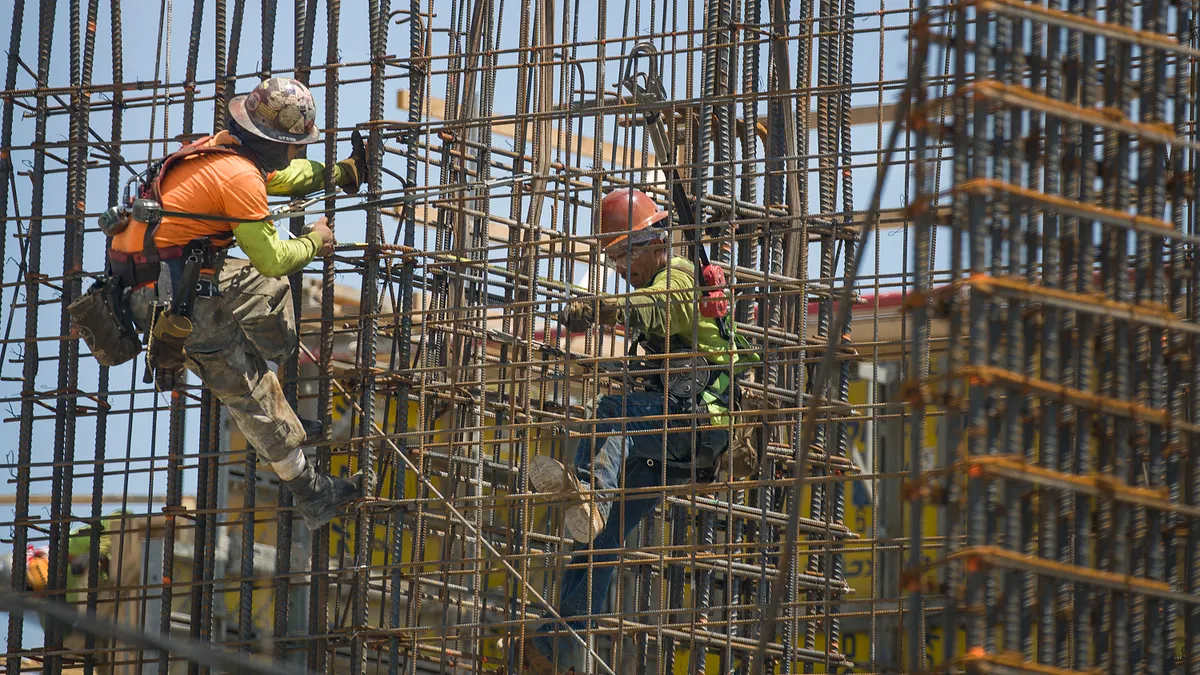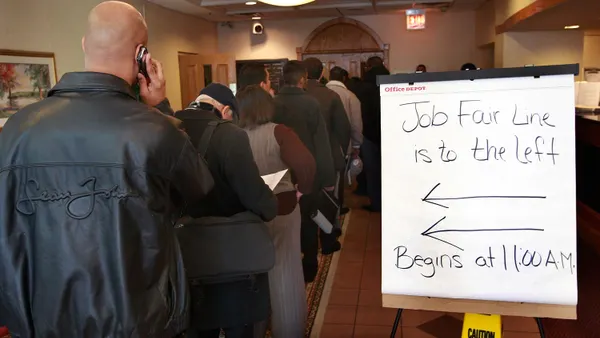Dive Brief:
- The nonprofit Robert F. Kennedy Human Rights launched an initiative on Oct. 6 to advise employers on how their employees are valued and treated at work, with content and messaging specifically focused on the concept of "workplace dignity."
- The Workplace Dignity initiative, supported by a grant from the philanthropic Tramuto Foundation, will start with a content series published by RFK Human Rights with collaborators such as Harvard University affiliate Donna Hicks and advocacy groups including One Fair Wage and ReadySet, among others, said Jeffrey M. Siminoff, senior VP at RFK Human Rights and leader of Workplace Dignity.
- "The idea was to give organizations and their leaders the tools to actually do something with the things they say they care about," Siminoff told HR Dive. He added that RFK Human Rights is working with an advisory council of organizations in various industries and will launch an additional component of the program, an event series called Voices of Dignity, in 2022.
Dive Insight:
The initiative is timely, Siminoff said, in part due to the talent market shift created by the pandemic as well as workers' response to that shift. With U.S. quit rates at record highs in 2021, employers have been tasked with responding to the "great resignation" and the accompanying shuffling of workers' career goals and desires.
Notably, Siminoff said the trend has created an important question for RFK Human Rights; "Is there an awakening occurring with employees where they aren't valued or don't feel they're being heard?"
A number of factors could be leading employees to leave their roles, Siminoff said. Workers may feel employers are not investing in their skills and development, prioritizing their safety or ensuring that they can operate in a diverse and inclusive environment. "When all those things start crashing together, it makes workers feel susceptible to change," he continued. "These changes feel even more crucial in moments like this."
Siminoff said RFK Human Rights believes many employers already focus on the principles of workplace dignity, even if they do not yet have a name for the concept internally or are looking at different components of employee dignity in a compartmentalized manner. "The funny thing is, the concept of dignity is woven into what organizations talk about internally, it's just not really well articulated externally," he said.
Other organizations may talk about dignity in their policies or in lists of company values, "but there isn't a lot of meat, if you will, behind the slogans," Siminoff said. "We're trying to go beyond the slogans."
The initiative builds off recent research by RFK Human Rights, including a 2020 survey conducted in conjunction with Willis Towers Watson that found 81% of employers thought workers were treated with dignity regardless of their job, level or role, though 65% of workers surveyed by the organizations felt similarly. Most employers in the survey said they planned to create a "culture of workplace dignity" within the next three years.
Siminoff said HR professionals can advance workplace dignity in a variety of areas. In recruiting for example, employers might be able to create a more inclusive workplace by expanding talent pools and dropping requirements that obstruct diverse talent, such as college degree requirements or those that exclude people who are in the criminal justice system. Conversations with leaders and managers can encourage these individuals to think differently about how they manage differences among team members, Siminoff continued.
The impact of the pandemic is another element employers need to consider, he added, particularly for those employing large numbers of customer-facing workers. Siminoff discussed a conversation he had with a restaurant industry contact in San Francisco that illustrated that impact.
"One of the things I'm hearing is that people signed up to be bartender or a server, and now they're tasked with extra duties of enforcing protocols, running food to longer distances [and] dealing with mask mandate disputes with customers," Siminoff said. "There's so many things being heaped on folks that it's no longer worth it."












